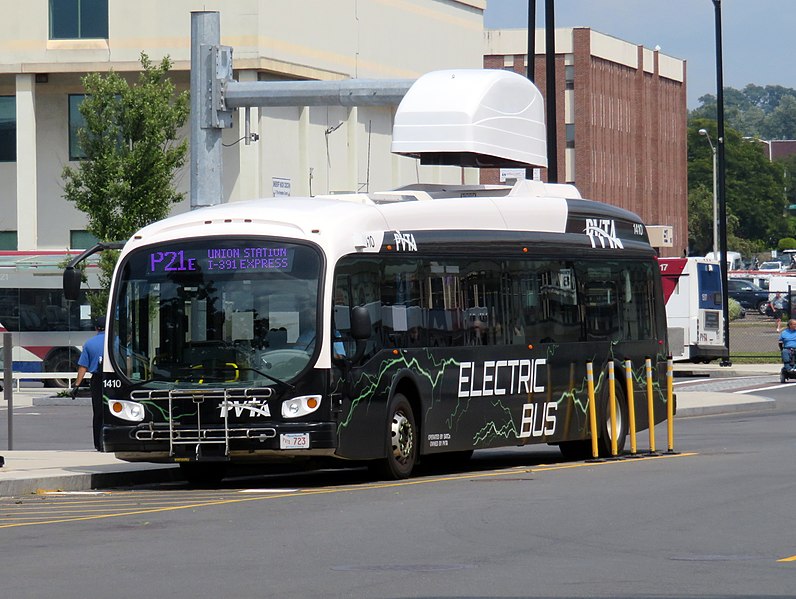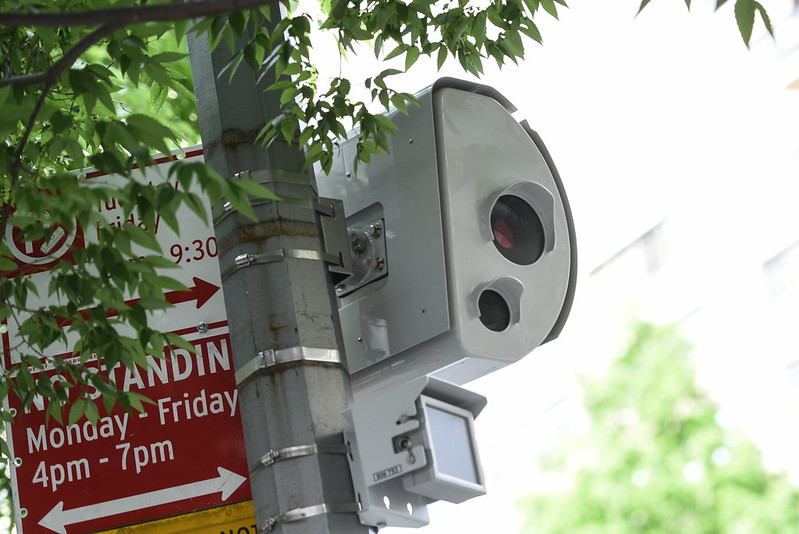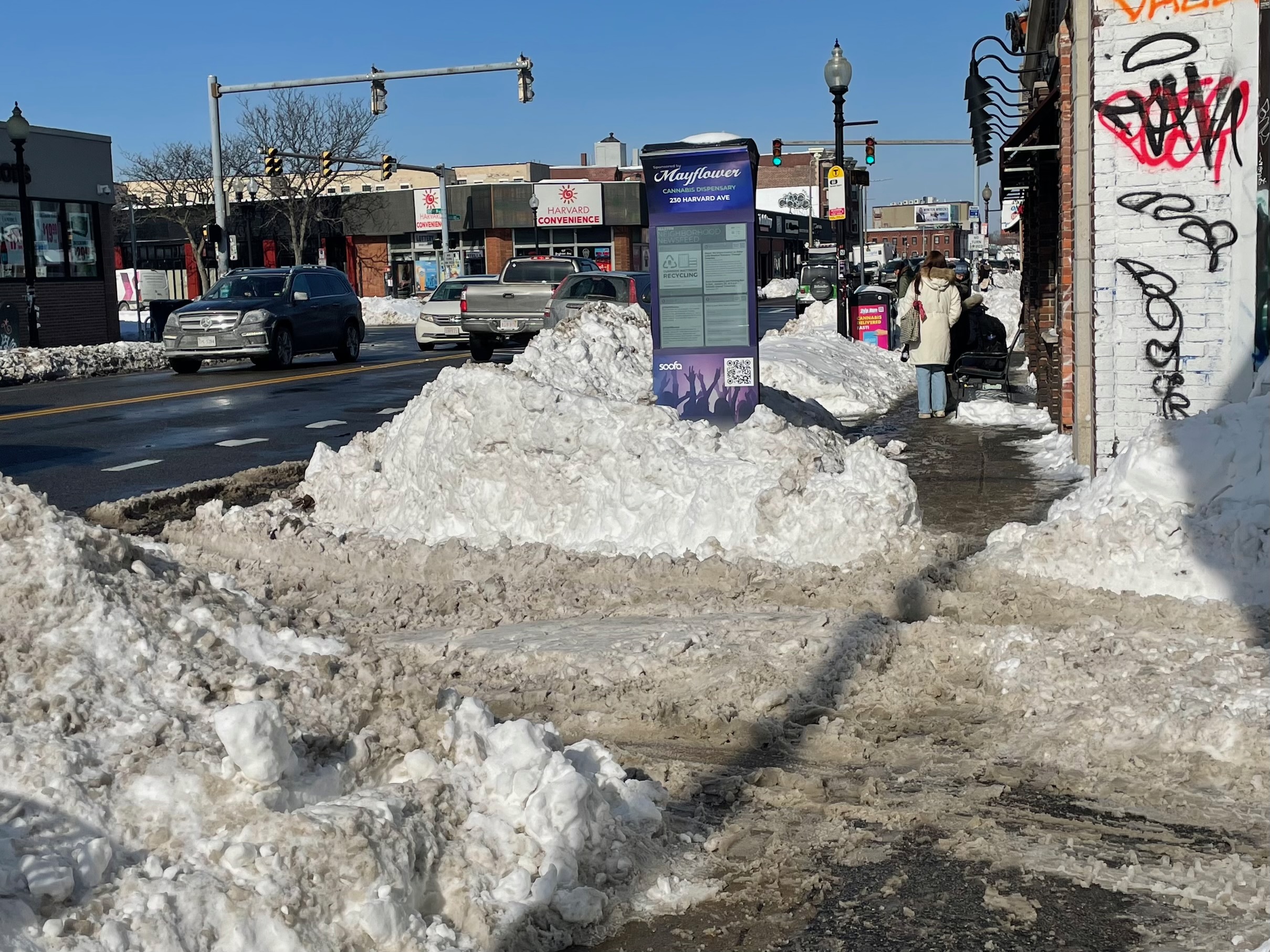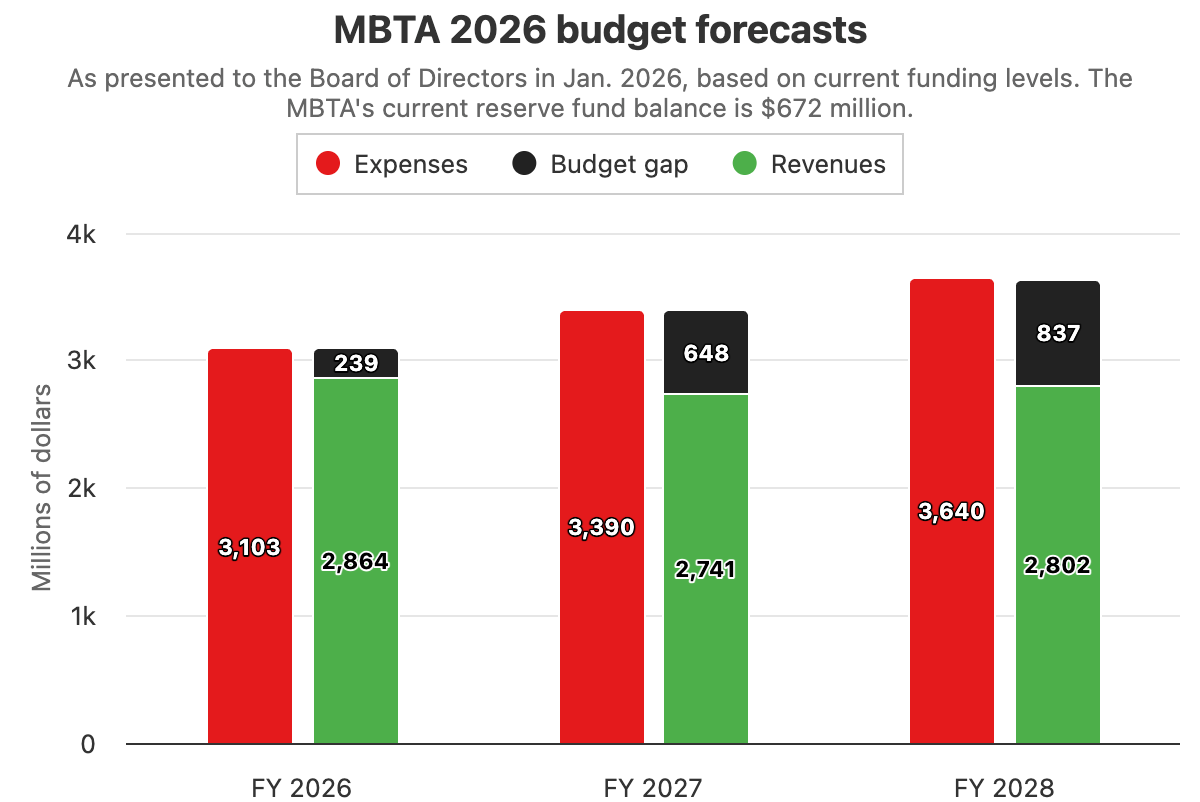The MBTA's Board of Directors held their monthly meeting on Thursday. Here's our roundup of the board's decisions and MBTA General Manager Phillip Eng's monthly report.
Newly-approved capital budget offers a 1 percent increase over last year's
After months of discussion, the board formally approved a 5-year capital investment plan (CIP) of $9.7 billion.
It's a lot of money – but there are lots of indications that it's not nearly enough to meet the MBTA's growing needs for repair and maintenance work.
Last year's CIP was worth $9.6 billion, so the newly-approved capital budget represents a 1 percent increase over last year's approved investments.
That's not nearly enough to keep pace with inflation: consumer prices have increased 3 percent since the last CIP went into effect a year ago.
The effects of inflation are evident in several of the CIP's biggest line-items, which are getting significant budget increases to contend with rising costs.
For instance, last year's CIP, which covered the fiscal years from 2023 to 2027, included a $783.4 million "total authorized budget" for the T's beleaguered "fare transformation" initiative.
This year's CIP boosts the budget for that project to $854 million – a 9 percent increase. Note that this does not include the considerable annual operating costs associated with the new fare system.
Similarly, under the newly-approved CIP, the MBTA's new Quincy bus garage now has a total cost of $476 million, an 18 percent increase over the $402.1 million budgeted in last year's CIP.
Board approves first big order for new battery-electric buses
Later in Thursday's meeting, the board approved a contract to spend a chunk of that new CIP budget: a $119 million contract for 80 new battery electric buses (BEBs).
The contract with New Flyer includes an initial base order of 48 conventional BEBs, plus 32 BEBs with street-side boarding capability for operations in the Harvard bus tunnel.
The buses, which have a projected range of 120 miles between charges, won't be entirely free of fossil fuels. Because heating buses in the winter can drain their batteries quickly, the new buses will include diesel-fueled heaters to keep riders warm on the coldest days.
A trial batch of 10 buses will arrive in 2024, then, in 2025, 27 more buses with street-side doors would arrive at the new North Cambridge garage, which is expected to go under renovation soon.
The majority of those early deliveries will operate on the former electric trolleybus routes – the 71 and 73 – that traditionally have used the Harvard bus tunnel and have been using diesel-fueled buses since the T scrapped its trolleybus fleet last year.
The remaining 43 battery-powered buses in this contract will have to wait until the T's new Quincy garage opens. That project has been delayed several times but its current projected opening is in 2026.
The contract provides the MBTA options to purchase up to an additional 380 BEBs from New Flyer as the agency adds and upgrades additional garage facilities that can accommodate the new buses.
The contract also includes an option for the new buses to include a "Mobileye Advanced Driver Assistance System," which would alert operators when pedestrians, bicycle riders, and other vehicles encroach on a bus's blind spots.
Eng imports more New Yorkers
After three months on the job in Boston, MBTA General Manager Phillip Eng announced that he is hiring four former colleagues from New York to join the MBTA's leadership team.
"Today I'm pleased to announce that we are beginning to restructure our organization, building on the institutional knowledge and reinforcing our management team with some new hires," Eng told board members.
Eng, who spent most of his career at the New York State Dept. of Transportation (NYSDOT) and the Long Island Railroad (LIRR) before joining the T this spring, tapped four former colleagues to join him in the move to New England.
The new hires include Dennis Varley, a former Long Island Railroad Deputy Chief Engineer, who will be the T's new Chief of Stations; Sam Zhou, formerly an Assistant Commissioner at the NYSDOT, as the T's new Assistant General Manager of Engineering and Capital; Doug Connett, a former Chief Officer of the Staten Island Railway, as the T's new Chief of Infrastructure; and Rod Brooks, formerly the Senior Vice President of Operations at the LIRR, as the T's new Senior Advisor for Capital, Operations, and Safety.






